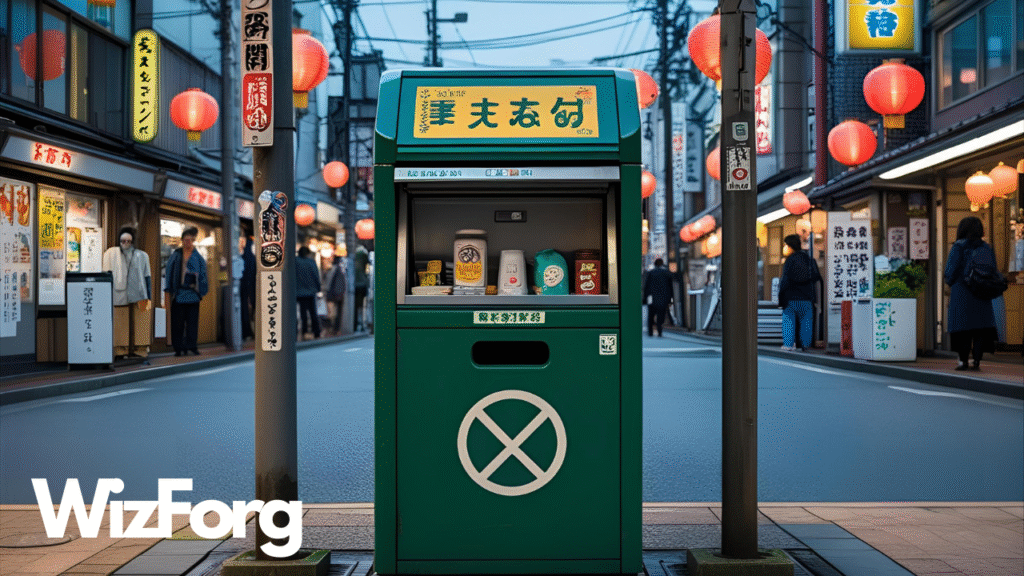If you walk down any street in Tokyo or Kyoto, you might notice something strange: there are almost no public trash cans. You could walk for blocks without finding a single bin—and yet the streets are spotless. How does Japan stay so clean without offering places to throw trash away?
The answer lies in a unique blend of culture, history, and personal responsibility that makes Japan a quiet global leader in cleanliness.
The Tokyo Subway Attack That Changed Everything
Before the 1990s, Japan had more public trash bins, especially in busy places like train stations. But that changed in 1995 after a deadly sarin gas attack on the Tokyo subway. The poisonous gas was hidden inside a trash can, and in the aftermath, many public bins were removed for security reasons. The fear of similar attacks pushed authorities to keep public spaces less cluttered—and that included eliminating most bins in high-traffic areas.
Today, you’ll still find trash cans in places like convenience stores or next to vending machines, but not on street corners or in parks like you would in many Western cities.
A Culture of Responsibility
One of the main reasons Japan can function without trash cans is that people simply take their trash home. It’s normal for someone to carry an empty drink bottle or food wrapper in their bag until they find a place to dispose of it—often at home or work.
This mindset starts early. Japanese schoolchildren are taught to clean their classrooms, and many events and festivals include cleanup as part of the experience. The idea is simple: everyone should take responsibility for their surroundings.
Group Harmony Over Convenience
Japan’s culture places a strong emphasis on wa, or group harmony. That extends to public behavior—including waste disposal. Littering isn’t just considered rude; it’s seen as a disruption to social harmony. Even if there’s no one around, people tend to avoid making a mess out of respect for the community.
This deeply ingrained social pressure keeps public areas clean without the need for enforcement. Japan has relatively few sanitation workers compared to major Western cities, yet its streets are cleaner.
Strict Waste Sorting Rules
Another key factor is Japan’s highly organized and localized waste disposal system. Garbage isn’t just “thrown out”—it’s sorted, often into five or more categories such as burnable, non-burnable, PET bottles, cans, and paper. Each neighborhood has its collection days and rules, and violations can result in trash not being collected.
Because the system is so structured, people are very aware of what waste they’re creating and when they’ll be able to get rid of it properly. That awareness makes them more likely to carry their trash rather than dumping it in the wrong place.
Tourism vs. Trash
Interestingly, the lack of trash cans can confuse tourists, especially during events like cherry blossom season when public parks become picnic zones. Some local governments bring in temporary bins during holidays to accommodate the extra waste, but the overall message remains: you’re responsible for your garbage.
For travelers, it’s a good idea to carry a small bag for your trash, especially if you plan to eat or drink while on the go.
Final Thoughts
Japan’s clean streets aren’t the result of having more bins or stricter penalties—they’re a reflection of a shared cultural ethic. The country’s commitment to cleanliness is built into its education, social norms, and daily life. In a society where everyone sees it as their job to take care of public space, trash cans aren’t needed.
Want to learn more about surprising cultural habits around the world? Visit Wizforg.com and subscribe to our YouTube channel for more stories that show you what travel guides often leave out.



